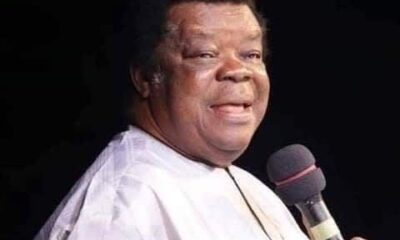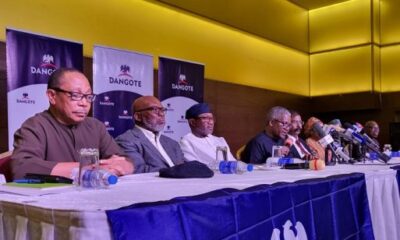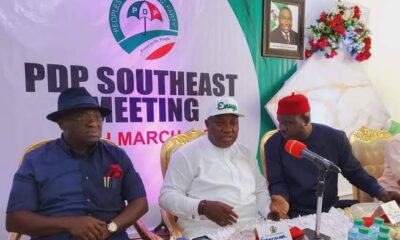Chairman of the Independent National Electoral Commission (INEC) Prof. Mahmood Yakubu, has called on lawmakers to accelerate the approval of electoral law reforms.
Speaking Thursday in Abuja at a meeting with the European Union Election Observation Follow-up Mission to Nigeria—headed by Barry Andrews, who previously led the EU Mission for the 2023 General Election—Yakubu stressed the importance of timely legislative action.
READ ALSO: BVAS must not fail in 2027 – PDP warns INEC
The INEC chairman argued that prompt passage of electoral amendments is essential for the commission’s preparation for upcoming elections.
“Uncertainty over the legal framework for the election can unsettle the work of the commission as the election draws nearer,” Yakubu said.
He disclosed that INEC has examined all eight recommendations specifically targeting the commission within the European Union Election Observation Mission’s (EU EOM) analysis of the 2023 general election.
Yakubu provided historical context, explaining that the 2019 EU EOM produced 30 recommendations—11 directed at INEC, with three classified as priority items and eight as general recommendations.
By contrast, the 2023 EU EOM report generated 23 recommendations, with eight (34.8%) requiring INEC action. Just one qualified as a priority recommendation.
The other 15 recommendations (65.2%), including five designated as priorities, call for action from various entities such as the executive branch, legislature, judiciary, political parties, and civil society organizations.
“The commission has carefully considered all eight recommendations specifically addressed to us in your report,” Yakubu said.
“Action has already been taken on those aspects that require only administrative measures for implementation.”
“Similarly, action is being taken on cross-cutting recommendations that require collective action between INEC and other bodies and stakeholders while waiting for the conclusion of the ongoing legal review by the National Assembly on the recommendations that require legislative intervention.”
The chairman explained that EU recommendations, along with input from other domestic and international election observers, informed INEC’s comprehensive post-election analysis of the 2023 general election through consultations with various institutions and stakeholders.
This review process yielded 142 recommendations for electoral improvements, and INEC released its comprehensive report on the 2023 general election more than twelve months ago.
“As you are aware, an election is a process governed by law. Many of your recommendations require a review of our electoral legal framework,” Yakubu said.
“For this reason, the commission has engaged with the National Assembly, including participating in a retreat with the Joint Committee on Electoral Matters.”
Yakubu pledged INEC’s continued cooperation with the EU Election Observation Mission (EU EOM) and other monitoring organizations, acknowledging that their input has enhanced the standard of Nigeria’s electoral system and procedures.
Barry Andrews stated the mission’s purpose was to evaluate implementation progress on the recommendations from the EU EOM’s 2023 general election report.
Andrews noted the mission’s focus on understanding implementation levels, obstacles encountered, and issues surrounding future reforms, particularly those requiring constitutional changes.
“What we are here to do is to review the recommendations that came from the overall mission and were included in the final report published in 2023,” he said.
“We are very happy to see that there has been significant progress in addressing these recommendations.”
“We recognize that there are certain time constraints, both in terms of judicial and administrative reforms,” Andrews said.
“Of course, constitutional reform is somewhat more complex, but all of these recommendations are made against international standards that the EU, Nigeria, and most countries have committed to.”
He added, “We are part of a global election observation ecosystem that has helped to strengthen and support democracy—not only in Nigeria or Africa but across the world, including Europe.”
Referencing the off-cycle governorship elections held following the 2023 general election, Andrews mentioned the mission’s particular interest in measures taken to improve transparency in results publication—a critical recommendation from their earlier report.

 News2 weeks ago
News2 weeks ago
 News4 weeks ago
News4 weeks ago
 Features3 weeks ago
Features3 weeks ago
 News4 weeks ago
News4 weeks ago
 News3 weeks ago
News3 weeks ago
 News3 weeks ago
News3 weeks ago
 News7 days ago
News7 days ago
 News1 week ago
News1 week ago



























